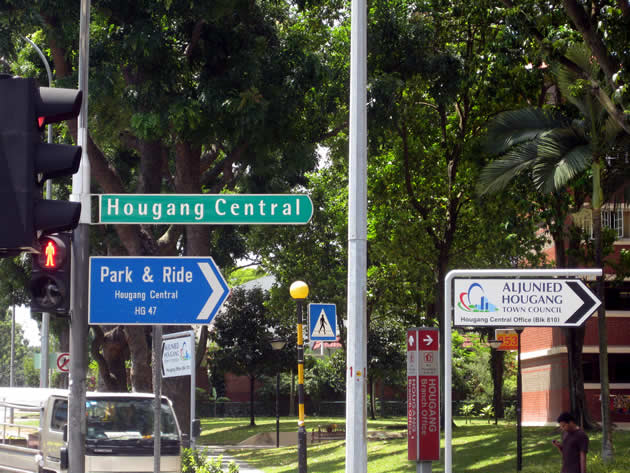- Joined
- Apr 6, 2011
- Messages
- 749
- Points
- 0

Constitutional law experts here say that a by-election should be held in Hougang SMC, even by the terms of our Constitution. (Yahoo! file photo)
Singapore's constitution does require that a by-election be held in Hougang as the seat for the single member constituency has become vacant, constitutional law experts said Tuesday. Constitutional law professor Thio Li-ann and adjunct law professor Kevin Tan, both of whom lecture at the National University of Singapore, spoke in agreement with Nominated Member of Parliament (NMP) Eugene Tan, who asserted on Tuesday that the law in fact mandates a by-election for Hougang SMC, and that Prime Minister (PM) Lee Hsien Loong's discretionary power with respect to calling for one is "not an unfettered one".
In a letter published in the Today newspaper on Tuesday, Tan rebutted the points raised by MP for Bishan-Toa Payoh group representation constituency (GRC) Hri Kumar Nair in a separate note published in the same paper on Friday that there was "no requirement" for a by-election to be called immediately for Hougang SMC.
The seat for the Hougang SMC was declared vacant on Tuesday, as expected, after former MP Yaw Shin Leong said he would not challenge or appeal his expulsion earlier this month from the Workers' Party, which said the move was made because Yaw failed to explain allegations concerning his private affairs.
When contacted by Yahoo! Singapore, Thio said that Hri Kumar was basically reiterating PM Lee's standpoint, which she added represents "a political understanding of a legal system".
"While legally, the PM has the power to call a by-election or not, I find persuasive the argument that this discretion is not unfettered," she said.
"It (the by-election) should be done in a timely fashion with an eye to constitutionally-recognised principle of representative democracy, i.e. that every constituency should have a representative, rather than someone who can 'cover' a MP's duties but lacks legitimacy as the duly elected MP," she continued.
Thio also argued that when an SMC is left without a representative, it is less convincing than in the case of a GRC to say that his or her party will cover his or her duties, because the person or people covering for the displaced MP may not have been elected to do so. She also pointed out that this situation becomes worse should the MP in question be the sole MP from his party or an independent MP without a party.
"As a matter of prudence, so early in a parliamentary session, Parliament should have a full complement of MPs, and it is my view that a by-election should be called so that the people of Hougang can exercise their constitutional right to vote, and to be represented in Parliament by their representative, (whichever party he or she is from)," said Thio.
Adjunct professor Kevin Tan responded with his agreement quite simply, saying, "In brief, Eugene (Tan) is right and Hri (Kumar) is wrong. Eugene's latest letter states the law as it stands and must be regarded as the proper interpretation of the situation."
Former attorney-general Walter Woon believed the ruling party government's intention is to avoid being held to a timeline to call for a by-election.
Responding to queries from Yahoo! Singapore, he made reference to a statement made by former PM Lee Kuan Yew in Parliament at the end of 1965 that "there was no such injunction of holding a by-election within three months in our previous Constitution (before Singapore merged with Malaya in 1963)… Since we are no longer a part of the Federal whole, for reasons which we find valuable as a result of our own experience of elections and of government in Singapore, we have decided that this limitation should no longer apply."
"So legally, there is no such obligation (for a by-election to be held within a specific time-frame). The decision to do so is entirely political," said Woon.
"Will the voters feel that they have not been treated fairly if no by-election is called? That is the question," he added.
In his letter to Today, Tan referred to Article 49 (1) of Singapore's constitution, which states that an election "shall" be called when an elected parliamentary seat is vacated, as, he noted, does the parliamentary elections act.
"In both cases, the very use of 'shall' (rather than 'may') indicates, prima facie, the mandatory nature of a by-election," wrote Tan.
He acknowledged that PM Lee does have the right to exercise his own discretion on the timing of the by-election, but pointed out that Section 52 of the Interpretation Act states, "Where no time is prescribed or allowed within which anything shall be done, that thing shall be done with all convenient speed and as often as the prescribed occasion arises."
On this, and noting also a 1988 Court of Appeal decision that said "the notion of a subjective or unfettered discretion is contrary to the rule of law", because "all power has legal limits", Tan concluded that the PM's powers on timing of the by-election are not without restraint.
He argued that PM Lee should explain if he chooses not to hold a by-election or delay calling for one for an extended period.
"This accords with accountability and transparency. It assures Singaporeans that his decision is not based on narrow party interests," he wrote. "The thrust of Mr Hri Kumar's arguments is that calling a by-election is an act of benevolence by the Government. It is a sad day for our parliamentary democracy if the cardinal principle of representation is denied without justification."



